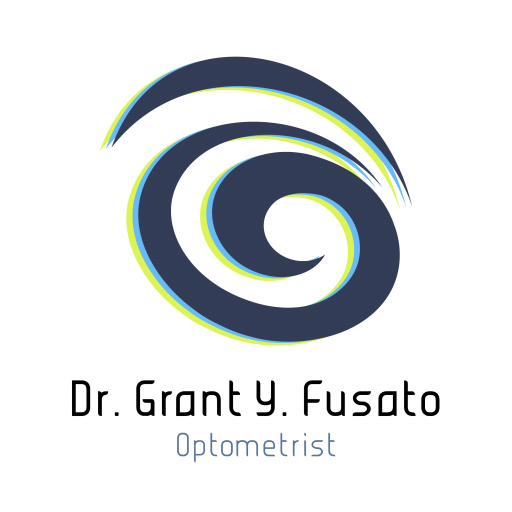The use of computers, tablets and other digital devices has become so commonplace in the daily lives of children that a report by The Vision Council in 2015 showed that close to 25% of children spend more than 3 hours a day using some sort of digital device. These numbers are only expected to grow. As these devices are becoming integrated into schools and becoming more common for use at a younger age, many experts and parents are wondering how the use of these devices can affect children’s eyes in the short and long term.
Computer Vision Syndrome (aka Digital Eye Strain)
Just like adults, children are susceptible to computer vision syndrome (CVS), also called digital eye strain, after extended use of computers or digital devices. Symptoms of CVS include eye fatigue and eye strain, dry eyes, headaches, blurred vision, and neck and shoulder pain.
Staring at a computer screen is a stress for the eyes, particularly for children whose eyes and visual system are less developed. This is because the computer-generated, pixelated images which appear on the screen are not what our eyes are accustomed to and therefore can cause the eye to strain after extended viewing. Some children find it uncomfortable to view screens for long periods because they simply don’t have the focusing power to spend extended amounts of time looking at these pixelated images.
Children don’t always have the self control to limit computer use or the awareness to know when they are experiencing eye fatigue or other symptoms of CVS. Because of this, they are more likely to overuse digital devices which can make symptoms worse.
Screen Use and Myopia
Myopia or nearsightedness is a growing concern as studies show the incidences of the condition are growing exponentially. In the past it was thought that myopia was primarily genetic, however recent research indicates a correlation between environmental factors and the growing exposure to and use of digital devices, particularly in children. As children increase their computer use and time spent on screen, the likelihood of developing myopia seems to also be increasing. According to a study done at the University of California at Berkeley School of Optometry which researched the incidence of myopia in 253 children between 6 years old and 10 years old showed a link with the amount of time spent on a computer.
The Effects of Blue Light
Blue light or high-energy visible (HEV) light is emitted from digital devices and is causing greater and greater concerns about long term exposure. It is already known that blue light can affect sleep and concentration but studies are also indicating that it can cause long term retinal damage, particularly in kids whose young eye have more sensitivity to environmental influences.
How to Protect Your Children from CVS
With the increasing use of and dependence upon digital devices it is important to teach your children good habits to protect their eyes while they are young. Understanding the risks and dangers of prolonged screen time should be taught at an early age. Here are some tips for safe computer and digital device use to reduce digital eye strain and prevent the negative effects it can have on your children’s eyes and vision.
- Limit Screen Time: When possible limit screen time to one or two hours a day, particularly for little children who don’t require computers for school work.
- Optimize Your Children’s Work Station: Ensure that children are positioned properly and that lighting is appropriate so that they do not have to bend or stretch in unnatural ways to see the screen adequately. The monitor should be slightly below the child’s eye line and about 18 – 28 inches away. The chair should also be adjusted so that the child’s arms comfortably rest on the desk and his or her feet touch the floor (when possible).
- Have Regular Eye Exams: Monitor your child’s eyesight, particularly an assessment of their near vision skills.
- Follow the 20-20-20 Rule: Every 20 minutes, take 20 seconds to look at something at least 20 feet away.
- Get in the Habit of Stretching: At regular intervals stretch the back, arms, shoulders and neck to relieve tension and reduce strain or soreness.
- Consider Computer Glasses: Computer glasses are made to help the eyes focus more easily on the computer screen. If your child already wears prescription eyewear, prescription computer glasses are available as well.
- Anti-glare: Anti-glare screens or coatings on eyeglasses can reduce glare and eye strain.
- Look for signs of eye or vision problems such as blurred vision or eye rubbing, redness or a stiff neck. If you notice any lasting vision problems see your eye doctor for an examination.


We are closed on holidays and select Saturdays. Hours subject to change.